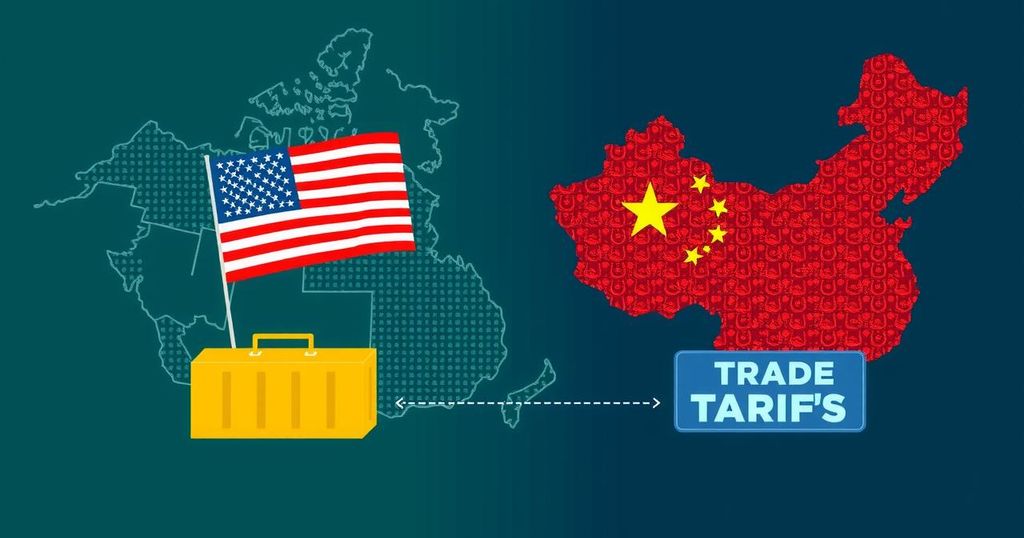Trump Proposes Major Tariffs on Imports to Address Immigration and Drug Trafficking

President-elect Donald Trump plans to impose significant tariffs on goods from Mexico, Canada, and China starting on his first day in office. He cites illegal immigration and drug-related issues as motivations. The proposed tariffs aim to boost domestic manufacturing and tax revenue, despite potential inflationary effects and risks of initiating trade wars.
President-elect Donald Trump has announced his intention to enact substantial tariff increases on imports from Mexico, Canada, and China, commencing on the first day of his presidency. He stated that these tariffs are a response to concerns over illegal immigration and associated crime. In a post on Truth Social, Trump declared that he would implement a 25% tariff on all products from Mexico and Canada until they address the issues he cites. Additionally, he indicated that goods from China would incur a 10% surcharge above existing tariffs unless the country curtails the flow of illegal drugs.
Trump’s approach reverts back to his previous administration’s reliance on tariffs to bolster domestic manufacturing and address trade deficits. Notably, he forecasted that under his plans, tariffs would lead to increased government revenues even though they are typically borne by American consumers through elevated prices on imported goods. Economists have voiced concerns that such tariffs could drive inflation, with estimates suggesting a cost of over $2,600 per household due to proposed increases.
While Trump aims to leverage tariffs aggressively, experts caution that such moves can provoke retaliatory tariffs from other nations, potentially igniting trade conflicts that would counteract the intended benefits. During his prior term, similar strategies did not yield the anticipated advantages for domestic producers, complicating his present strategy as he proposes significantly higher tariffs of up to 60% on Chinese goods. Furthermore, the economic implications of these policies may have lingering effects on the broader market and consumer spending.
As revealed in ongoing developments, Trump has stated that he previously secured assurance from Chinese officials regarding significant drug enforcement measures which were not fulfilled. The unfolding situation highlights the complexities surrounding international trade relations and domestic economic policy.
This article discusses the proposed tariff initiatives by President-elect Donald Trump focusing on imports from key trading partners. These measures are framed in the context of addressing illegal immigration and drug trafficking, particularly relating to the opioid crisis. Trump’s plan echoes his previous economic strategies aimed at reshaping trade dynamics with foreign nations, which has far-reaching implications for U.S. manufacturing, consumer prices, and international relations.
In summary, President-elect Trump’s tariff proposals signify a potential shift toward a more isolationist economic policy, with aims to confront issues he associates with immigration and drug trafficking. However, such measures could lead to significant economic repercussions, including increased costs for consumers and possible retaliatory trade actions from affected countries. As this situation develops, the implications for both domestic and international markets remain to be fully understood.
Original Source: www.cnn.com








